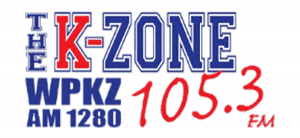The quality of hospital care in a state with some of the most prestigious medical centers in the world continues its years-long trend of decline. That’s not some Ivy Tower opinion, but rather one from those on the front lines of health care. It’s what the annual survey of registered nurses found, reinforcing conclusions reached […]
editorial
Editorial: City of Fitchburg, residents in these heroic workers’ debt
How about a warm round of applause for this group of hard-working public employees. By the way, they’d really appreciate that warmth. And please, no jokes about how many workers it takes to change a light bulb. That insulting, hackneyed stereotype of the municipal sector couldn’t be further removed from the harsh reality faced by […]
Editorial: Mass., N.H. govs must follow mayors’ drug-partner steps
A few weeks ago Lowell Mayor Dan Rourke addressed an open letter to New Hampshire Gov. Kelly Ayotte on this newspaper’s Opinion page in response to her tweet warning drug dealers from Lawrence and Lowell that law enforcement in her state “will find you, stop you, and lock you up.” While rightly pointing out that […]
Editorial: Feds’ Title IX probe may preclude need for girls opt-out bill
The breakneck speed in which the Trump administration has moved to reverse the way things have previously operated in Washington has kept political pundits’ heads on a swivel. That alacrity has spread beyond The Beltway, and in doing so may have overtaken events unfolding across the country, including in Massachusetts. That seems to be what’s […]
Editorial: Don’t let murderer of Colleen Ritzer elude deserved fate
Reliving a nightmare. That’s what the family of a Danvers High School math teacher raped and murdered by one of her students must endure, now that lawyers for Philip Chism, her killer, have made motions before the Supreme Judicial Court to vacate his conviction. Chism, then 14, raped, robbed, and murdered Colleen Ritzer in a […]
Editorial: Take these early steps to preempt drought conditions
Mother Nature has exacted a price for those picture-perfect, late summer days in September. That ideal weather for outdoor, recreational pursuits has left our area with the onset of drought conditions, the product of below average rainfall over the past two months. That moved Energy and Environmental Affairs (EEA) Secretary Rebecca Tepper to declare a […]
